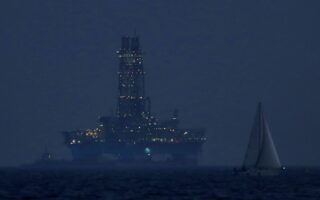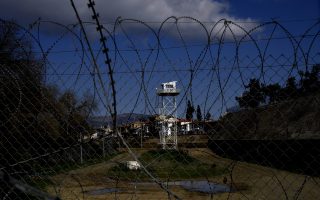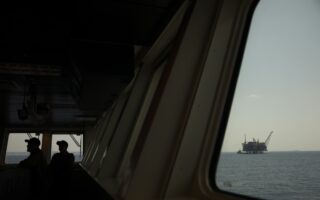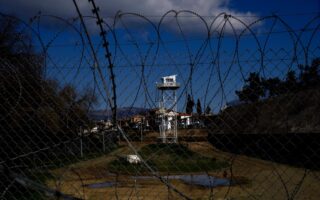Europe 2.0 starts in Greece and Cyprus
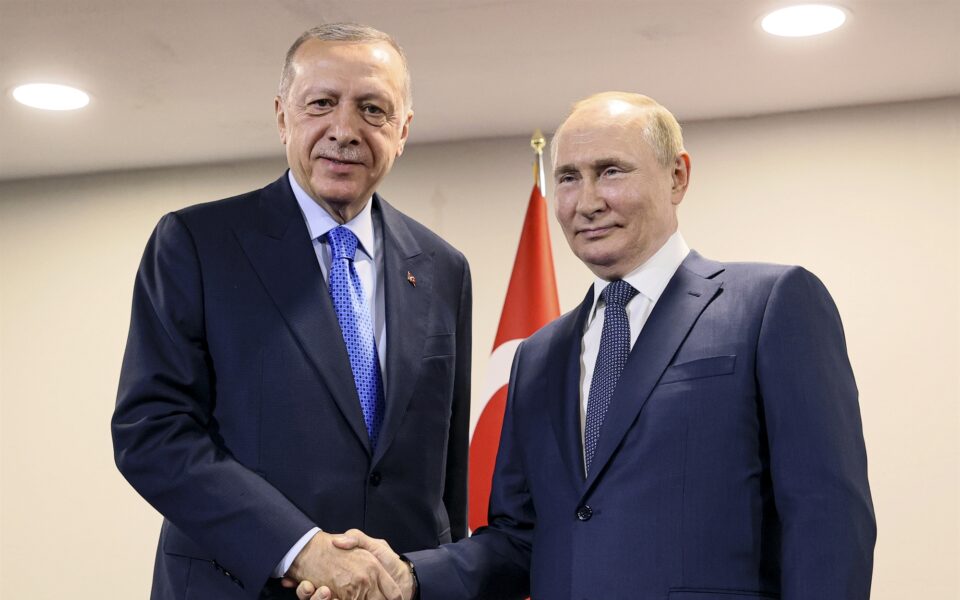
Just over 70 years ago, the European Coal and Steel Community was formed. The idea was simple: To secure peace, Europe would break Germany’s near monopoly over two of the most important energy and industrial commodities of the day. By diversifying supply, post-war Europe hoped they might sustain peace and temper the arrogance of power that Germany’s coal mines and steel industry enabled. It worked better than its founders imagined and, a generation later, became the basis for the European Union.
History repeats itself. Russia uses its energy monopoly to threaten, coerce and extort Europe. Turkey has been little better, threatening any country that undermines the monopoly and revenue streams it enjoys as a transit hub. Russia’s invasion of Ukraine and Turkey’s attempts to profit off the crisis should be the last straw.
If the European Union is going to maintain peace and security and, indeed, survive, it is time to return to its roots. Gas now is the coal and steel of yesteryear. Turkey and Russia today are doing just as the World War II-era revanchist states did in a bid to claim territory – both land and sea – in order to distract from economic failings and grab new resources.
Aegean islands are not something over which Eurocrats in Brussels should bargain, but rather territory that they must defend as if the islands were Spanish, French or German. At issue is not Greece, but rather the rules-based order on which Greece is now the frontline. The same is true with Cyprus. If Turkey can occupy, ethnically cleanse, and import Turkish settlers into northern Cyprus, only to have European diplomats accede to its demands to recognize the occupied zone as an independent country, then the post-World War II order at the heart of the European Union is dead. The Kremlin, for example, will look at the precedent of a new state in Cyprus to support its claims not only to Donetsk and Luhansk in Ukraine, but also to Republika Srpska in Bosnia and even the Baltic states.
The norms of maritime law are also at stake. To allow Turkey to challenge the exclusive economic zones (EEZs) of Greece or Cyprus is to encourage a free-for-all across the Eastern Mediterranean. Turkey will not stop at the looting of Cypriot gas, but Ankara will also use its proxies in Libya to siphon off resources there. Turkey will also use any recognition of farcical maritime claims to block the development of East Med pipelines that might transport Israeli or Cypriot gas to Greece and the southern Balkans. The goal of Turkey, after all, is simply to preserve its monopoly and keep Europe dependent.
Breaking Germany’s monopoly over coal and steel helped bring almost 80 years of peace to Europe. Breaking Russia and Turkey’s monopoly over gas shipments could do the same
Other countries will fall victim to Turkey’s ambition if European leaders believe they can appease President Recep Tayyip Erdogan. One of the only bright spots in Egypt’s economy, for example, has been the discovery of gas fields off its northern coast. Italy’s Eni has helped Cairo develop these. Precedent matters. To allow Turkey to upend nearly eight decades of maritime law in Cyprus is to imperil European investment in Egypt and further afield by encouraging illegitimate claimants to assert claims that are ever more bizarre.
Here, the US State Department has been particularly shortsighted. By withdrawing support for the EastMed pipeline, supposedly due to its lack of economic feasibility, Washington imperils its allies. That it does so with faulty logic only makes the decision worse: The EastMed pipeline might be more expensive than trans-Turkey pipelines, but it can do more, such as transport Cypriot green hydrogen fuel. American diplomats’ assessment of the energy markets is naive. While the price of oil and gas might drop, Saudi Arabia’s efforts to diversify mean that kingdom will act to return oil to a minimum of $100/barrel. That Washington’s influence on Riyadh is at its lowest point in 80 years means Saudi Crown Prince Mohammed bin Salman will do what he wants.
If the last year should have shown European leaders anything, however, it is that energy security and authoritarian monopolies are mutually exclusive. Russia sought to leverage its monopoly to force Europe to cower, and Turkey will do the same if Europe simply shifts from relying on Vladimir Putin to Erdogan. Neither has goodwill nor Europe’s interest at heart.
Breaking Germany’s monopoly over coal and steel helped bring almost 80 years of peace to Europe. Breaking Russia and Turkey’s monopoly over gas shipments could do the same. Europe will pay for a wrong choice in blood, not euros. To realize EastMed is the future, however, would revitalize Europe and ensure new opportunities for peace from Calais to Kastellorizo.
Michael Rubin is a senior fellow at the American Enterprise Institute.
